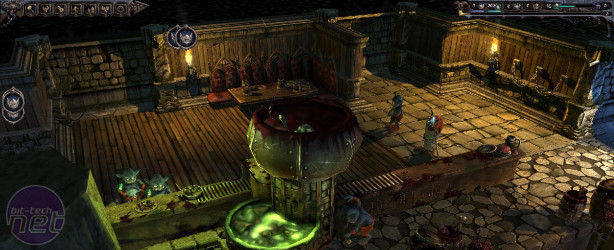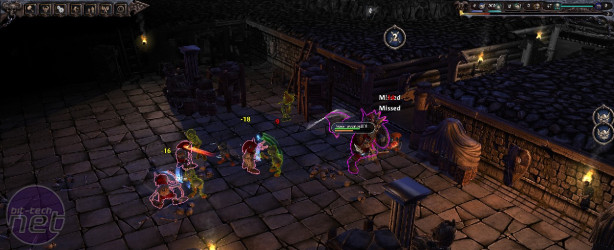
Impire Preview
Publisher: Paradox InteractivePlatform: PC Exclusive
Release Date: Q1 2013
Paradox Interactive has a problem – or, more accurately, it has two problems. It’s on the verge of competing with itself as it develops two games that are so similar that each demonstration opened with practically the same line. It’s a line that some gamers have been waiting years to hear: “The easiest way to describe X would be to say that it’s a tribute to Dungeon Keeper” – where ‘X’ is either A Game of Dwarves or Impire.
The parallels between the games are uncanny, though both are being made by different developers and take slightly different approaches to the concept. A Game of Dwarves is the more stylised of the two with it’s plain, cartoony textures and squat unit models; it’s also tonally the most different, casting you as a Dwarf prince who isn’t inherently evil but must still build an underground fortress.
Impire is the one that stands closest to the cited source, from the more lava-gothic art style right down to the fusion of evil deeds and slapstick comedy. In both games your persona is manifested as an actual in-game character (though not merely as a floating hand), but it’s only Impire which personifies you as inherently evil. You’re also a little bit cute to start with as well, appearing initially as a tiny imp conjured by an evil sorcerer who had instead hoped for something closer to Horned Reaper. Over time you’ll grow, becoming either a formidable warrior or sorcerer in your own right – but to do so you’ll need to prove your worth as a doer of evils.
To do that you’ll need to proceed through the expected steps; hiring or summoning minions, committing evil deeds and generally being an unpleasant fellow. One area where Impire (and actually A Game of Dwarves too) differ from the usual Dungeon Keeper template though is in their above-ground reach. In Impire especially you’re often required to conduct raids on the surface settlements, sometimes to secure resources that will advance the story or provide bonuses. One example we saw involved assaulting an archaeological dig to secure the professor in charge.
Where Impire differs most from Dungeon Keeper however isn’t in just the aesthetics, but in the handling of multiplayer, where players are differentiated by the exact type of evildoer they decide to be. Variations reap certain advantages and disadvantages from the norm, as well as cosmetic differences which help identify them in battle. Undead armies, for example, are generally stronger than the default units but cannot be healed without sacrificing other creatures. Their dungeons are meanwhile marked by the glow of pentagrams and fiery cracks of lava in the floor.
What’s really interesting about Impire’s multiplayer though is the wealth of modes on offer, including such unusual combinations as King of the Hill. Here, the only way to gain points is by holding control of a central portion of the map and direct attacks on symmetrically situated enemies, while fun and useful for interference purposes, are ultimately purposeless by comparison.
What really stands out about Impire aren’t the differences between Dungeon Keeper and it, however, but the similarities. The tone and style of Bullfrog’s classic has been captured perfectly, while at the same time being enlivened with a few new touches. There are approximate analogues to all the old hallmarks of Dungeon Keeper, from the use of traps for snaring inattentive adventurers through to the analogues of specific units. Impire’s Sexy Succubus replaces Keeper’s Dark Mistress, for example, because according to the developer: “It wouldn’t be a Dungeon game without a sexy succubus type character, would it?”
Given the level of these similarities – and the fact that the same publisher is putting out two such games – it’d be tempting to say that, while Dungeon games need sexy succubi, gamers may not need the game as a whole. To go down that avenue of argument though is to forget just how old Dungeon Keeper was; how long ago Bullfrog first blazed that trail. Think for a minute about how many years have passed since then and how, in all that time, so few games have even tried to expand upon those themes.
That Paradox is even trying to breathe some life back into the genre, after all these years? We still find that enormously exciting.
Impire will be published by Paradox Interactive exclusively on the PC. In the meantime, why not check out what other games we’ve seen out at GamesCom 2012?

MSI MPG Velox 100R Chassis Review
October 14 2021 | 15:04











Want to comment? Please log in.